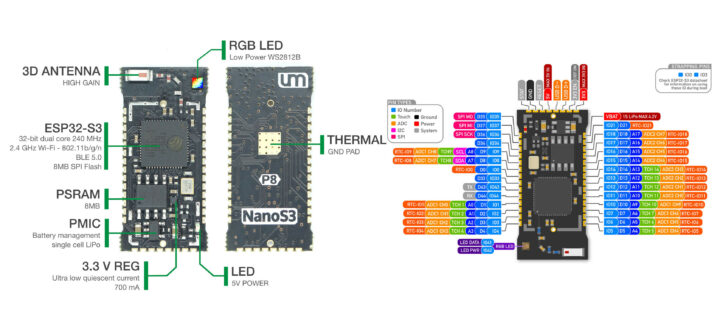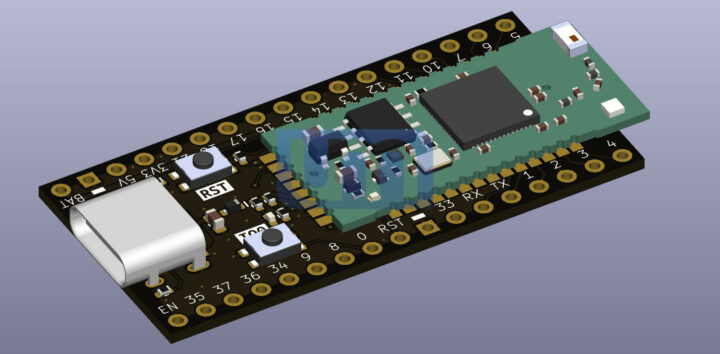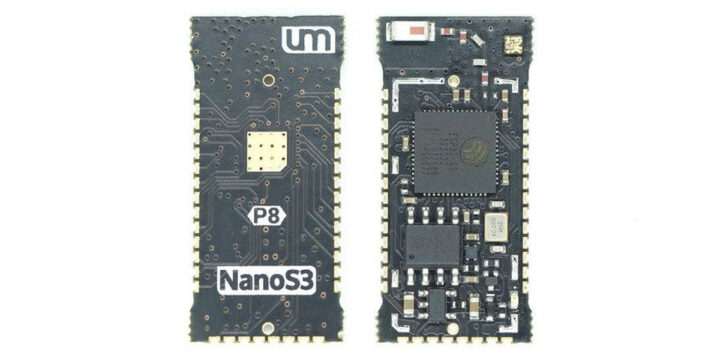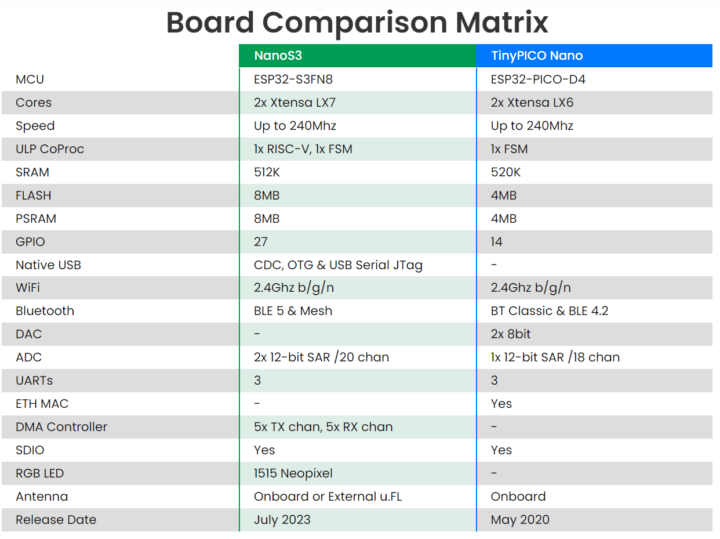Seon Rozenblum, better known as Unexpected Maker, has launched NANOS3 a development board that claims to be the world’s smallest, fully-featured ESP32-S3 module! This new module packs all the peripherals, and wireless connectivity features of an ESP32-S3 while being even smaller than the TinyPICO Nano. The module features two variants one with an onboard 3D antenna and the other with an u.FL connector.
Previously we have written about TinyS3, FeatherS3, and ProS3 boards from Unexpected Maker we have also covered many unique ESP32-S3 boards like the ESP32-S3 PowerFeather Board with solar input, the Waveshare ESP32-S3-Relay-6CH, the ESP32-S3 4G dev boards and more feel free to check those out if you are interested in ESP32 boards with advanced features.
Unexpected Maker NANOS3 Specifications
- SoC – Espressif ESP32-S3FN8
- CPU – Dual-core Tensilica LX7 up to 240 MHz with 512KB SRAM, 16 KB RTC SRAM
- Memory – 2MB QSPI PSRAM
- Storage – 8MB QSPI flash
- Wireless – WiFi 4 and Bluetooth 5 LE + Mesh;
- I/O
- 2x 12-bit ADC
- 3 DAC
- 5x TX/RX PWM channels
- Onboard RGB LED
- NeoPixel Support (up to 1515 Neopixels)
- 27x GPIO broken out with 1.27mm pitch castellated edges
- JTAG Support
- D+/D- pins for external USB connector
- Power Management
- 700mA 3.3V LDO Regulator
- LiPo Battery Charging
- Optimized power path for low-power battery usage
- Antenna – Onboard 3D high gain antenna or external u.FL connector
- Dimensions – 28 x 11 mm (the TinyPico Nano mesures 27 x 13 mm)
- Release Date – July 2023

For simplicity, the company provides a pinout diagram along with parts annotation for the board. The pinout also shows USB and external Vin connections, making it easy to get started.
The NanoS3 ships with a UF2 bootloader and pre-installed CircuitPython, allowing for easy firmware updates. Other than that the board can also be programmed with MicroPython, ESP-IDF, and Arduino IDE. The company also provides a getting started guide for those who what to build applications around this board.
The board is completely open-sourced so files like 3D STEP files, KiCAD symbols and footprints, reference designs, PDF schematics, high-resolution pinout references, and much more can be found on the Unexpected Maker ESP32-S3 GitHub repository.

The is priced at USD$19.00 and can be found on Unexpected Makers web store, In the store you can also get an External uFL Antenna just for $1. For additional details and a comparison between the NanoS3 and TinyPICO Nano, visit their product page.
Debashis Das is a technical content writer and embedded engineer with over five years of experience in the industry. With expertise in Embedded C, PCB Design, and SEO optimization, he effectively blends difficult technical topics with clear communication
Support CNX Software! Donate via cryptocurrencies, become a Patron on Patreon, or purchase goods on Amazon or Aliexpress






